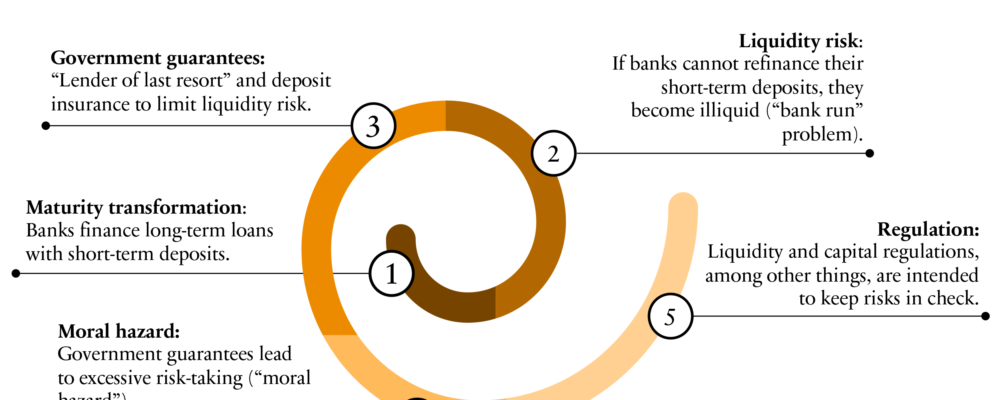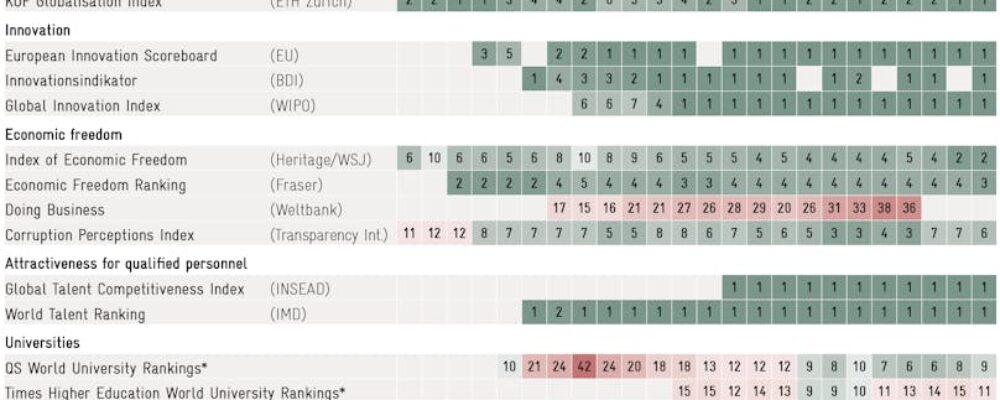Economists are generally not fond of subsidies, as they often lead to market distortions and poor allocation of incentives. This also applies to tax benefits, which are among the most problematic forms of subsidies. It is no coincidence that the legislature notes in article 7, letter g of the Subsidies Act (Subventionsgesetz) that financial aid in the form of tax benefits should generally be avoided. This is because these financial aids are opaque and costly: As indicated in the 2022 federal financial report, Switzerland grants an estimated 20 to 24 billion CHF in tax benefits annually, which is nearly one-third of federal revenues.
Where the Swiss Confederation collects too little. (Ernie Ernst, Avenir Suisse, AI-generated)
Tax Benefits are Common
As shown in the table, this amount is primarily composed of benefits related to direct federal tax (9.6 billion CHF), value-added tax (8.1 billion CHF), and stamp duties (4.4 billion CHF). However, not all the tax benefits listed in the table are problematic from an economic perspective. A large portion of the amounts mentioned does not represent tax revenue the Confederation is truly forfeiting, as it was never entitled to it in the first place. For example, most of the benefits from federal taxes are simply deductions for retirement savings or work-related expenses of private households.
However, it is the granting of tax benefits to a selection of companies that is more problematic. This results in unequal tax treatment, which not only affects federal revenues but also has significant potential to cause harmful market distortions. Unfortunately, it is difficult to quantify the exact extent of the distortions due to tax benefits granted to individual companies each year. However, considering the Confederation’s estimated tax and fee reductions, it is likely that the amount runs into several billion francs.
Tax and Fee Reductions by the Confederation (2022)
| Type of Tax | Estimated Benefit |
|---|---|
| Direct Federal Tax | 9,600 million CHF |
| Value-Added Tax | 8,100 million CHF |
| Stamp Duties | 4,400 million CHF |
| Mineral Oil Tax | 1,500 million CHF |
| CO2 Levy | 70 million CHF |
| Heavy Vehicle Charge | 30 million CHF |
| Total | >23,700 million CHF |
| Source: EFV (2023) | |
The tax and fee reductions listed in the table are neither exhaustive nor up-to-date. On the one hand, they are based on estimates from, in some cases, 20 ago. On the other hand, the Swiss Federal Tax Administration’s 2011 report on tax exemptions for legal entities lists several other tax benefits that cannot be quantified due to a lack of available data. These include, for example, tax exemptions for regional authorities and their institutions (see, for instance, “Tax Privileges for Cantonal Banks”) or tax exemptions for licensed transport companies.
Unsystematic Incentive and Redistribution Effects
How is it that so many tax benefits are granted in Switzerland, even though the Subsidies Act explicitly states that financial aid in this form should be avoided? The answer likely lies in the fact that tax benefits are particularly suitable for “rent-seeking” (see “Why Economists Don’t Like Subsidies Very Much”). There are three main reasons for this:
Firstly, tax benefits can be targeted relatively accurately: By properly structuring them, it is possible to easily and precisely provide monetary advantages to one’s clientele without tying the benefits to conditions or requirements. On the other hand, the costs of such benefits are often difficult to quantify and somewhat “invisible” – the forgone revenue does not appear in either the budget or the State’s accounts.
Finally, the costs of tax benefits can be conveniently and largely unnoticedly distributed across the general public.
Essentially, these specifically granted tax benefits are hidden subsidies. They blur budgetary responsibility and are not reflected in the state quota (Jeitziner and Moes 2011). Other disadvantages of tax benefits include unsystematic incentive effects, windfall gains, and unclear distribution effects that often do not manifest as intended. Moreover, they increase the complexity of the tax system, create enforcement problems, and evade parliamentary control. It often requires significant administrative effort to determine who is actually entitled to a specific tax benefit. Given the current tight federal finances, it would be wise for the government to take a closer look at this issue.
Savings Potential in the Federal Finances: Unknown
The Confederation grants an estimated 20 to 24 billion CHF in tax benefits each year. Some of these are structured so that only selected companies and industries benefit; they are essentially hidden subsidies. The exact scope of these selective tax benefits for companies is unknown.
The published articles from the “Summer Series on Federal Finances” can be found here.
“Avenir Suisse is an independent think tank that works for the future of Switzerland by developing evidence-based, liberal, free-market ideas.”
Please visit the firm link to site





